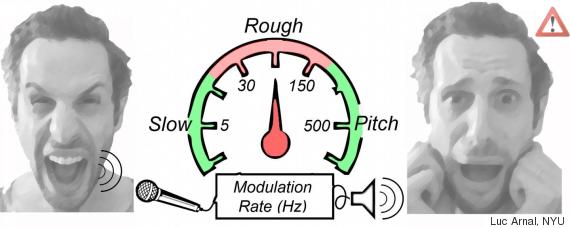Why Do We Notice an Alarm Sound?
Have you often wondered why some sounds attract more attention than others? Why do alarm/emergency type sounds attract more of our attention?
Here’s Why The Sound Of Screaming Freaks You Out
The Huffington Post | By Carolyn Gregoire Of all the terrible sounds in the world, few are worse than that of a screaming baby — especially when it’s sitting next to you on an international flight.
Now, can explanation for why the sound of human screaming is so awful.
New research from New York University, published in the journal Current Biology, finds that among the sounds made by human beings, screams have an unique sonic property that activates not only the parts of the brain involved in auditory processing, but also the brain’s fear circuitry. Scroll down to the playlist below to test your own reactions.
“There’s a part of the soundscape that’s reserved for screams, which is cool and weird — but it makes sense, because you want that sound to be specialized,” Dr. David Poeppel, a professor of psychology and neural science at NYU and one of the study’s authors, told The Huffington Post. “You want the signals you use for alarm purposes to be really unique, special and easily identifiable.”
While most people say screams are more unpleasant than other sounds, the researchers noted they’re generally not able to identify why they feel such strong aversion. Usually, they say it’s because the sound is loud or high-pitched, although these qualities are not what makes a scream distinct.
For the new study, researchers gathered recordings of human screams from movies, YouTube videos and live volunteers. They plotted the auditory properties of the various screams and then conducted brain scans on listeners to measure how the screams affected the firing of auditory neurons.
The key distinction here is “roughness” — — a measure of how much a sound fluctuates in volume. Normal speech shifts by only small amounts, but screams fluctuate widely.

Brain imaging data revealed that human cries possessing greater roughness activated the brain’s fear circuitry — an area that is also tripped by alarm signals such as ambulance sirens and car alarms. The more roughness that a scream had, the more it activated the amygdala, a region of the brain critical to fear responses.
The findings might pave the way for more effective alarms — a rougher alarm signal might provoke more fear and be harder to ignore.
“You can make more effective alarm signals and scarier movies,” said Poeppel. “[Using this research], you can modulate sounds in a very specific way.”

